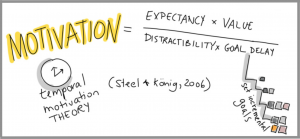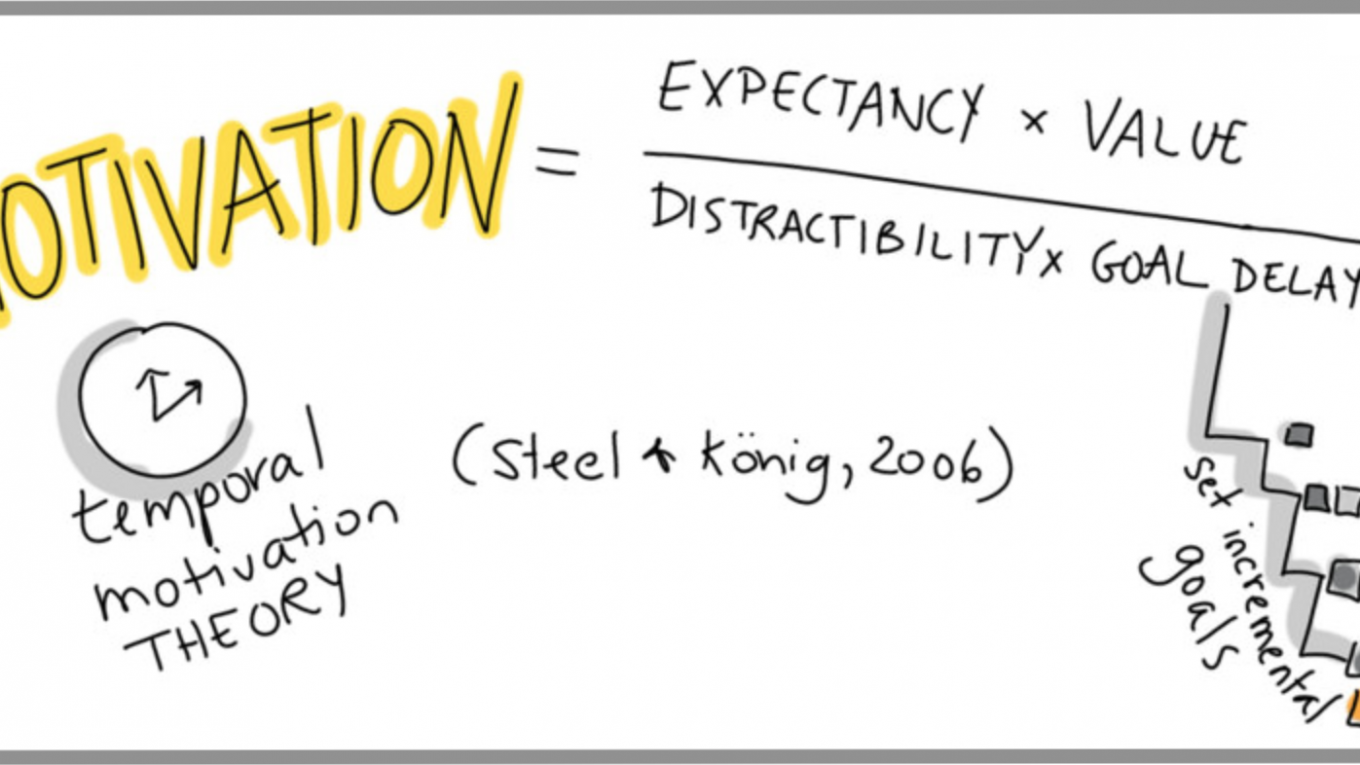Motivations
This is a reading response for week 11 of the 6411 Cognition and Learning course, with a focus on Motivation.
What kinds of attributions have you made (use a personal example)?
Attributions for success or failure, as described by Linnenbrink and Pintrich (2002) can include environmental factors and personal factors. These are perceived to be impacted by factors of stability, locus, and controllability. Self-efficacy, considered to be a belief about capabilities to perform a task or succeed in a domain, such as my belief that I can complete a PhD, is situated and contextualized, with grounding in actual and calibrated accomplishments (Linnenbrink & Pintrich, 2002). For example, since I’ve accomplished some peer reviewed writing, which is a calibrated accomplishment and also a component of a PhD program, therefore I perceive I can complete a PhD. Self-efficacy is positively linked to a range of positive results of schooling. (Linnenbrink & Pintrich, 2002).
I’ve attributed my success in the PhD program thus far to stable factors such as ability, skill and talent. I also attribute my failures to a lack of effort and lack of strategy use e.g. not preparing diligently for discussion posts, or not learning how APA effectively. This allows me to protect my sense of self-worth and avoid future failures. Knowing that the cause of events can be changed through feedback, I actively seek feedback from others for the PhD learning tasks.
Environmental manipulations support my work as a teacher, since I provide feedback to my students for both their successes and failures, because even with success comes next steps. Remarking on the use of strategies, both my own and that of my students, shifts the perception to one of internal locus of control (Linnenbrink & Pintrich, 2002).
What kinds of attributions do you see your students making?
I’ve definitely seen students view failure on an assignment from an external locus of control, exhibiting maladaptive responses, such as instructor bias, task difficulty or lack of external support, rather than one that focuses on the unstable causes or internal locus of control, such as not having the skills or strategies YET in order to succeed (Dweck, 2015; Linnenbrink & Pintrich, 2002).
On the alternate side, I’ve also seen students excel under great personal pressures with a motivated and positive attitude – that sense of self-efficacy mentioned by Linnenbrink & Printrich (2002). They take personal failure in stride, attributing it to a lack of applied skills, which they know they will acquire with time, effort and practice. Their failure lies within their control, not in the hands of the instructor who doesn’t believe in them, or the lack of support from others. For online learners, there is a conscientiousness (Alkis & Temizal, 2018), along with inquisitive playfulness, and can-do attitude that comes through in students’ who are successful.
Have you seen evidence of how those attributions may affect their future success?
A sense of self-efficacy is essential for student success (Alkis & Temizel, 2018; Linnenbrink & Pintrich, 2002; Sun, Lin & Chou, 2018; Willingham, 2009). In my experience, students who believe they can succeed, and are motivated by the ultimate goal of becoming a teacher, often do reach positive outcomes on course tasks. Motivation is a strong factor in the students’ beliefs of achievement (Linnenbrink & Pintrich, 2002; Saade & AlSharhan, 2015). Those students who rely on their own internal motivations, build their skills and strategies by trying new things, and incorporate feedback from others into their work, are often successful.
 Since I design online learning spaces with active feedback processes, from me as the instructor, but also from colleagues and classmates as part of a peer feedback process, I see this as a component of the intrinsic and extrinsic factors that impact motivation and feelings of self-efficacy. Linnenbrink & Pintrich (2002) state that actual, calibrated accomplishments led to feelings of self-efficacy. Barnes (2014) states that applying feedback, following a framework such as summarize, explain, redirect and resubmit (SE2R), can lead to improved learning outcomes. With effective feedback, students can recalibrate learning attributes, re-establish goals, and experience intrinsic feelings of achievement. As seen in the graphic image (Forsythe, 2018), I suggest feedback is the essential attribute that can lead to enhanced motivation through self-efficacy, attributions, intrinsic motivation, and achievement goals (Linnenbrink & Pintrich, 2002).
Since I design online learning spaces with active feedback processes, from me as the instructor, but also from colleagues and classmates as part of a peer feedback process, I see this as a component of the intrinsic and extrinsic factors that impact motivation and feelings of self-efficacy. Linnenbrink & Pintrich (2002) state that actual, calibrated accomplishments led to feelings of self-efficacy. Barnes (2014) states that applying feedback, following a framework such as summarize, explain, redirect and resubmit (SE2R), can lead to improved learning outcomes. With effective feedback, students can recalibrate learning attributes, re-establish goals, and experience intrinsic feelings of achievement. As seen in the graphic image (Forsythe, 2018), I suggest feedback is the essential attribute that can lead to enhanced motivation through self-efficacy, attributions, intrinsic motivation, and achievement goals (Linnenbrink & Pintrich, 2002).
References
Alkis, N. & Temizal, T. (2018). The impact of motivation and personality on academic performance in online and blended learning environments. Educational Technology & Society, 21(3), 35-47.
Barnes, M. (2014, Oct. 6). Assessment 3.0: 4 simple words that will revolutionize learning. Retrieved 18, Nov. 2018 from http://www.brilliant-insane.com/2014/10/assessment-3-0-4-simple-words-that-will-revolutionize-learning.html
Dweck, C. (2015, January 1). The secret to raising smart kids. Scientific American. Retrieved 18, Nov. 2018 from https://www.scientificamerican.com/article/the-secret-to-raising-smart-kids1/
Forsythe, G. (2018, October 20). Magic of feedback: TA workshop by @KarenLJulien. [image]. Retrieved from https://www.flickr.com/photos/gforsythe/43633514830/
Linnenbrink, E. & Pintrich, P. (2002). Motivation as an enabler for academic success. School Psychology Review, 31(3), 313-327.
Saadé, R. G., & AlSharhan, J. (2015). Discovering the motivations of students when using an online learning tool. Journal of Information Technology Education: Research, 14, 283-296. Retrieved from http://www.jite.org/documents/Vol14/JITEv14ResearchP283-296Saade1724.pdf
Sun, J., Lin, C-T., & Chou, C. (2018). Applying learning analytics to explore the effects of motivation on online students’ reading behavioural patterns. International Review of Research in Open and Distributed Learning, 19(2). Retrieved from http://www.irrodl.org/index.php/irrodl/article/view/2853
